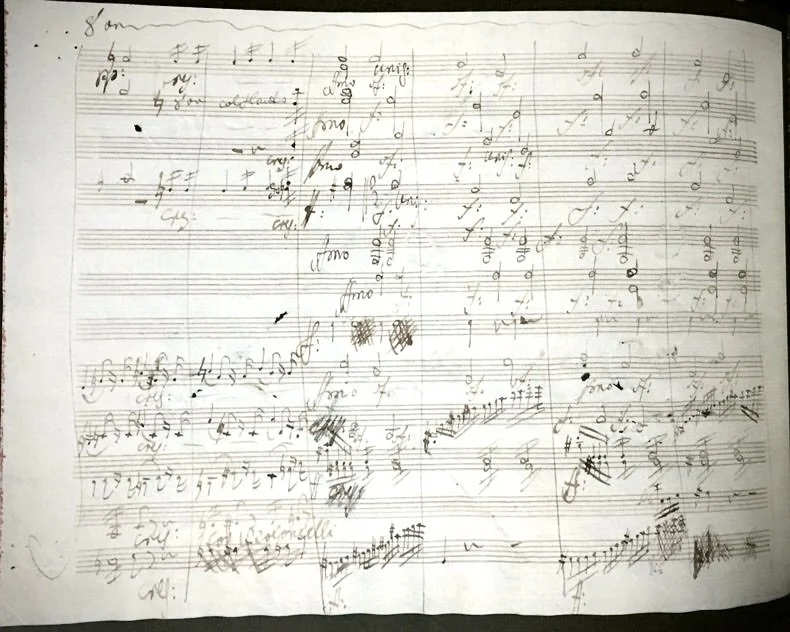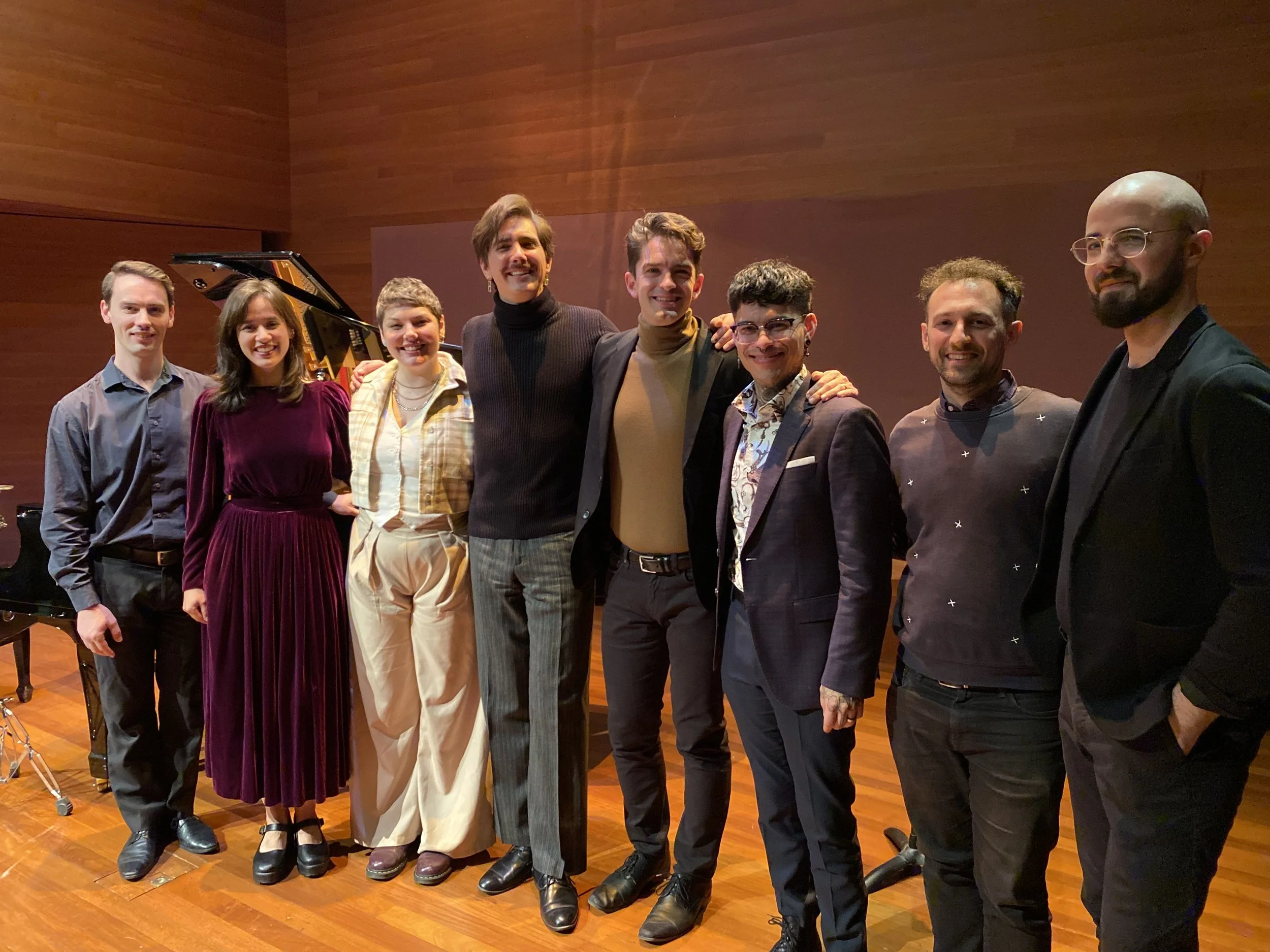REVIEW: Imagining a World Without Humans
Above photo by Steve Pisano.
by David Wolfson
September 13, 2024
There's a huge colony of monk parakeets that nests in Green-Wood Cemetery's huge Gothic gatehouse. When I arrived at the cemetery about an hour before sunset for Death of Classical's presentation of Gelsey Bell's mɔɹnɪŋ [morning//mourning], the parakeets were making a tremendous racket.
Death of Classical is an organization that presents classical music performances in crypts and cemeteries; their concert series The Angel's Share, named after the part of a barrel of whiskey that evaporates while maturing, includes a spirit tasting event as a pre-show reception. For this performance, the tastes were available in the lobby of the funeral chapel, just inside the gatehouse.
The performance itself was in the cemetery's Catacombs, about a 15-minute walk through the grounds from the chapel. The Catacombs is home to an ongoing concert series; both Death of Classical and Gelsey Bell are frequent presences. The space is a long, arched corridor, with the vaults opening off to either side. Audience is seated at either end, facing the primary performance area in the middle. (The acoustics are remarkably suited to music, despite the space's resemblance to an underpass, or maybe a Pringles can.)
mɔɹnɪŋ [morning//mourning] was presented here in an hour-long version, abridged for these performances from the 90 minutes it originally ran at the HERE Arts Center last year. (The first word in the title is the pronunciation of the other two words in the International Phonetic Alphabet.) The piece takes as its premise that humans have all suddenly disappeared, and explores what might happen to the planet afterwards, taking its cue from Alan Weisman's 2007 book The World Without Us. It's billed as an opera, but at least in this incarnation is more of a semi-staged oratorio; while the five excellent performers (Gelsey Bell, Aviva Jaye, Brian McCorkle, Mia Pak, and Paul Pinto) have character names listed in the program, they are never used, nor do they interact as ongoing characters.
Photo by Steve Pisano.
The first of eleven sections, "Mourning," sets the tone as the performers ritually enter one by one from the vaults, each singing a wordless lament. The vocal techniques used here and throughout are from the contemporary palette: humming, overtone singing, constant glissando, and vibrato-less chest voice or falsetto, plus body percussion. Each performer has a distinct gestural vocabulary of grief, as well, integrated with the vocalism. (This comes more naturally for some of them than others.) I was drawn in immediately.
For the next nine sections, spoken narration intermingles with sung texts, beginning with the first 30 years after humans disappear, and spanning the eons until the death of all life on the planet about 1.6 billion years from now. The contemporary vocalism of the opening mingles with evocations of gospel, folk and vaudeville. Vocal fry, wind sounds, and animal noises, along with electronic drones and handheld percussion, are added to vary the soundscape; eventually, the performers play instruments as well.
Photo by Steve Pisano.
Particularly in the first half of the piece, up until about 5,000 years after our disappearance, as the planet recovers from our presence, the sense of time passing is palpable, evocative and involving. Both libretto and music are economical and extremely effective. Bell often cannily makes musical structure serve dramaturgical ends. For a number about the cycle of life, she writes a canon. For a number in which the planet reminisces about what it (they?) liked about humans, now only remembered by our trash, she plays an accordion, evoking nostalgia without ever quoting. For a number titled "Nothing Lasts Forever" (42 million to 250 million years from now), the performers hand off self-accompanied solos to each other.
As the eons pass and the scenario of necessity moves from science to science fiction (octopi evolve sentience and civilization; Earth becomes a galactic tourist destination because of its apparently rare total solar eclipses), the level of emotional involvement slackens. The penultimate number, leading up to the eventual demise of Earth's biosphere, is delivered in spoken sentences broken up among the performers by word, without musical accompaniment. It's a logical compositional choice, but one which almost allowed me to fall out of the piece.
The final number, "Morning," delivered in a full-throated celebratory chorale punctuated by animal sounds, was unfortunately the first and only time in the evening when I was unable to understand most of the words, but I picked up enough to gather that it was rewinding the story to the emergence of life on Earth.
In his pre-show speech, Death of Classical Artistic Director Andrew Ousley opined that Bell's piece was a natural for the venue. I have to agree; as I left the cemetery, the parakeets in the gatehouse had gone silent. It was all too easy to reflect on what would happen to our planet if we did too.
David Wolfson holds a PhD in composition from Rutgers University, and has taught at Rutgers University, Montclair State University and Hunter College. He is enjoying an eclectic career, having composed opera, musical theatre, touring children’s musicals, and incidental music for plays; choral music, band music, orchestral music, chamber music, art songs, and music for solo piano; comedy songs, cabaret songs and one memorable score for an amusement park big-headed-costumed-character show. You can find more information here.







